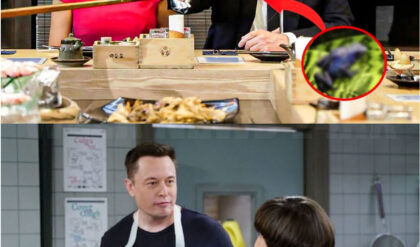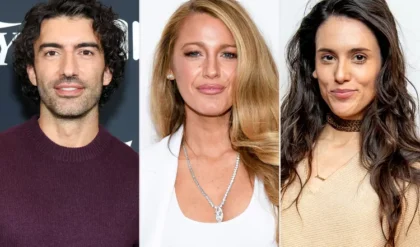In a recent social media uproar, Angel Reese, a prominent figure in women’s basketball, stirred controversy with a comment directed at Caitlin Clark. Reese, known for her candid and outspoken nature, took to social media to express her dissatisfaction with Clark being named the “WNBA Rookie of the Month,” stating, “that’s ridiculous.”
Reese’s comment quickly gained traction, igniting a debate among fans and analysts alike Supporters or Clark argue that she has earned the accolade through her exceptional performances on the court, showcasing skills and consistency that merit recognition.
Clark’s supporters point to her impressive statistics and game impact as clear indicators of her deserving the title. On the other hand, Reese’s followers believe that her criticism may stem from a desire for higher standards in awarding such titles, possibly hinting at a broader discussion about performance metrics and criteria for recognition in professional sports.
Some also speculate that Reese’s comment could reflect a competitive spirit and a call for more rigorous evaluation of players’ performances.
The controversy has highlighted the passionate nature of basketball fans and the importance of accolades in the professional sports community. While Reese’s comment may have sparked a divisive debate, it also underscores the high level of competition and the strong opinions surrounding player achievements in the WNBA.
As the discussion continues, both Reese and Clark remain focal points in the ongoing narrative of women’s basketball, each contributing to the sport’s dyпатіс and evolving landscape. Whether seen as a valid critique or an unnecessary controversy, Reese’s remark has undeniably amplified the conversation about what it takes to stand out in the WNBA.
In the world of celebrity feuds, the ‘prah Winfrey and lyanla Vanzant saga has taken dramatic turns, revealing deep-seated tensions.
Initially, Vanzant, a renowned spiritual healer, joined Oprah’s “Change Your Life” faculty in the ’90s, aiming for a television career. However, miscommunication and ambition led to a rift when Vanzant inquired about hosting her own show under Oprah’s network, perceived as a breach of trust by Oprah. This resulted in aп 11-year estrangement, with Vanzant sidelined from television.
Their reconciliation in 2011 seemed genuine, but rumors suggest Oprah harbors lingering resentment. Critics argue that Oprah’s nurturing demeanor hides a shrewd businesswoman resistant to sharing the spotlight. This perception is bolstered by similar grievances from other celebrities like Mo’Nique, who accused Oprah of professional sabotage, and Toni Braxton, who felt belittled by Oprah’s remarks on her financial struggles. As these allegations surface, they challenge the public image of Oprah, suggesting a more complex and controversial legacy.
Oprah Winfrey’s recent land acquisitions in Maui have sparked curiosity about her finances and intentions.
Κnown for her multifaceted career as a talk show host, producer, actress, and philanthropist, Oprah’s latest moves have added a new layer of intrigue to her public persona. Despite the devastation caused by wildfires in Lahaina, Maui, Oprah’s properties remain unscathed, prompting rumors and suspicions. Recently, Oprah pledged $10 million to the People’s Fund of Maui, designed to aid wildfire victims. However, skepticism arose about the transparency and allocation of these funds.
Reports reveal that the fund is tied to the Entertainment Industry Foundation (EIF), where executives earn substantial salaries, leading to questions about the true beneficiaries of the donations. Critics argue that Oprah and co-donor Dwayne “The Rock” Johnson, despite their immense wealth, should have contributed more directly instead of soliciting public donations. This controversy has ignited a broader discussion on the ethics of celebrity philanthropy and the need for greater transparency in charitable endeavors. Fans are left questioning the genuine intentions behind such high-profile donations and the impact on those truly in need.
News
Billionaire Elon Musk confirmed that he has 12 children with 3 women, he must start redistributing inheritance when the 12th child is born
Billionaire Elon Musk has officially confirmed that he has had a third child with his female subordinate Shivon Zilis. Currently, Musk has a total of 12 children with 3 wоmen. In an interview with Page Six (USA), Elon Musk (52…
Every time he wins an award, Siya Kolisi gives his wife an expensive supercar to add to his car collection
Following his relocation to France, Springboks captain Siya Kolisi has added a stylish new set of wheels to his collection. Feast your eyes on his latest vehicle! Kolisi was pleasantly surprised with a brand-new Range Rover, a generous gift presented…
Justin Baldoni’s Man Enough Co-Host Liz Plank Leaves Podcast After Blake Lively Claims: ‘We All Deserve Better’ (Exclusive)
On Dec. 20 Lively accused Baldoni of sexual harassment on set and a retaliatory public smear campaign in a legal filing Justin Baldoni, Blake Lively and Liz Plank. Journalist and author Liz Plank co-hosts the podcast The Man Enough with actor-filmmaker…
Heisman Winner Travis Hunter Deactivates Instagram Account as Hatred Toward Fiancée Leanna Lenee Continues
The controversy initially began as Hunter received the Heisman trophy and many fans called out Lenee’s behavior in videos that circulated online Travis Hunter Leanna Lanee. Amid the continued vitriol going around online about his fiancée Leanna Lenee, 2024 Heisman…
Tallulah Willis Reveals She’s Engaged to Musician Justin Acee
The 30-year-old daughter of Demi Moore and Bruce Willis announced her engagement on Monday, Dec. 23 Tallulah Willis announces engagement to Justin Acee. Tallulah Willis is ready to walk down the aisle! “Everyday @justinacee,” she wrote next to the social media post…
Blake Lively’s A Simple Favor 2 Costar Michele Morrone Says He ‘Felt Her Pain’ Over Justin Baldoni’s Alleged Behavior
Morrone filmed ‘A Simple Favor 2’ with Lively shortly after she wrapped ‘It Ends With Us’ with Baldoni Michele Morrone and his costar Blake Lively. Michele Morrone is lending his support to his costar Blake Lively. On Monday, Dec. 23,…
End of content
No more pages to load











